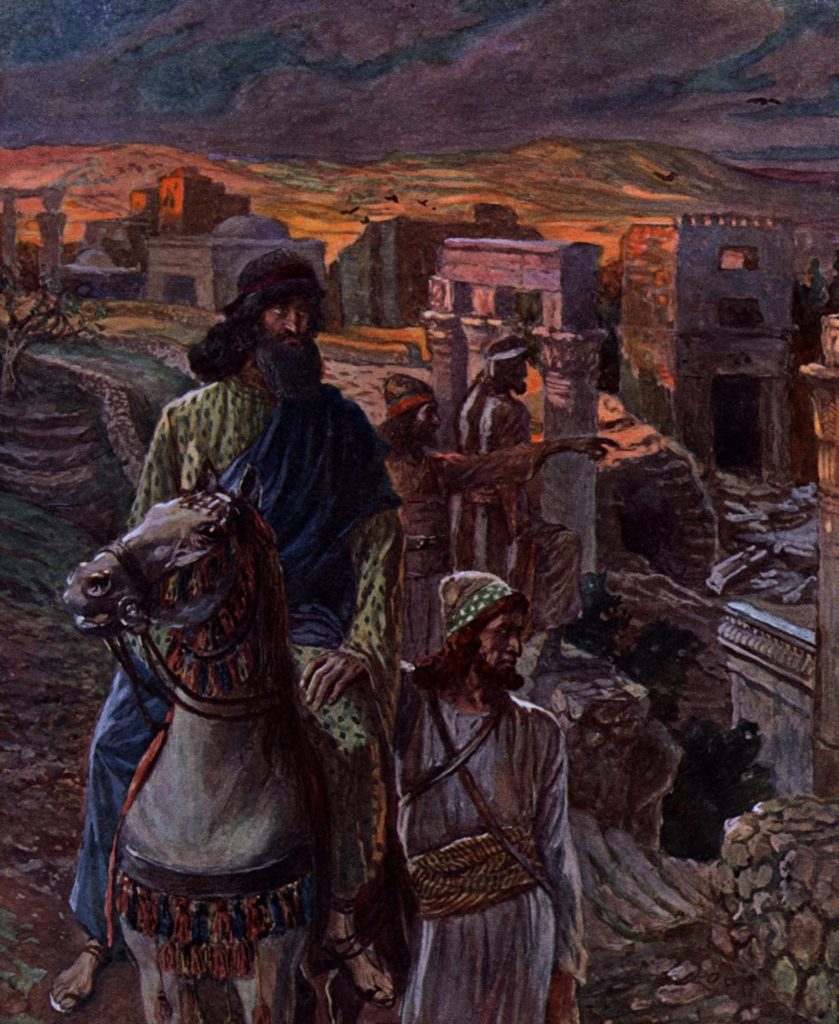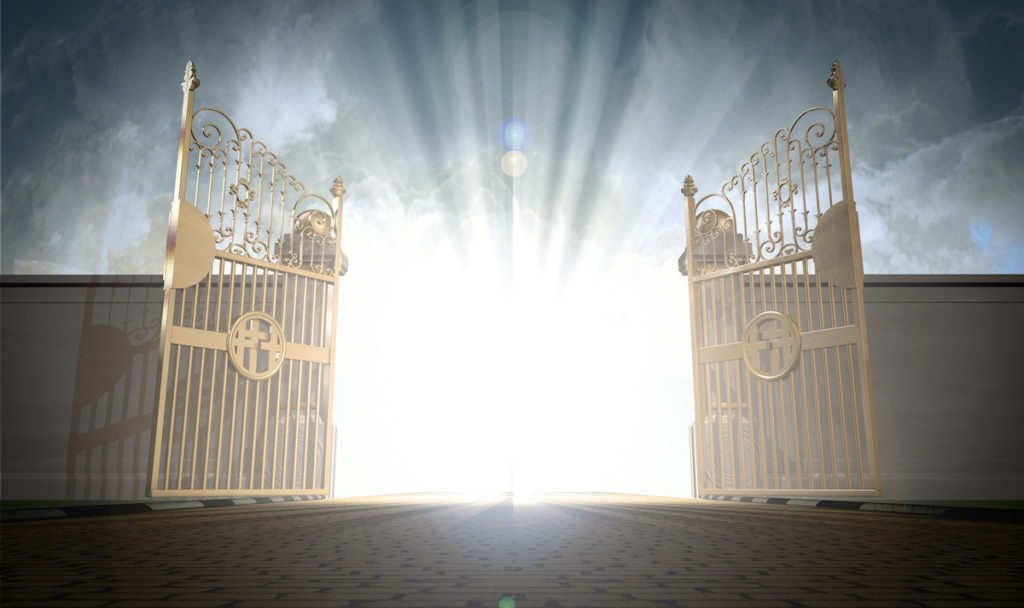Are you confused if not fed up with the conflicting and contradictory information coming out about the Covid “pandemic”? Which “expert” are you going to believe and how do you know what to do, say or think in response to it all? Are you sick of the “fear porn” being dished out like a load of barnyard &%$#? Well, this video will show you how to deal with this mess the biblical way.
Ezekiel 20 on YHVH’s Sabbaths, the Regathering of Redeemed Israel and the End Times Wilderness of the Peoples

Ezekiel 20:12, 13, 16, 20, My Sabbaths. YHVH cites Israel’s failure to keep his sabbaths as a prime reason for YHVH not permitting the older generation to enter the Promised Land. Judah’s not keeping the land sabbaths determined the length of her captivity in Babylon; namely, 70 years. The writer of the Epistle to the Hebrews brings up the Sabbath issue in chapter four of that book. What is the connection between keeping YHVH’s sabbaths and entering the spiritual rest of his Promised Land? (Read Heb 4:1–11.)
The Sabbath was the eternal sign between YHVH and his people, and it was one of the first Torah laws YHVH called upon Israel to practice. As noted, the failure of YHVH’s people to keep his sabbaths prevented the Israelites from going forward into their spiritual destiny.
Likewise, the fourth or Sabbath commandment of the Ten Commandments is the only one of the ten where YHVH instructs his people to “remember” it implying that they would eventually forget to keep his Sabbaths. History records that the Sabbath was the first so-called Jewish law that the early church left replacing it with Sunday (in the second century a.d.). In the modern Hebrew Roots Movement, YHVH’s people are beginning to leave the non-biblical religious traditions of men by returning to a more true-to-Scripture spiritual walk (a fulfillment of Malachi’s prophecy about the heart of the children being turned back to their fathers in the end days in preparation for Messiah’s arrival [Mal 4:4–6]).
How prominently does the Sabbath figure in the lives of those believers who are returning to the Hebrew roots of the Christian faith? How significant is this prophetically? Is history repeating itself in reverse? Instead of YHVH’s people leaving the Sabbath, they are returning to it. The keeping of the Sabbath is an acknowledgment of YHVH’s sovereignty as the Creator of all, and of his sovereignty over our time, work and lives. Keeping the Sabbath is a direct assault on idolatry, materialism, selfishness, rebellion, and assimilation into the surrounding pagan culture that occurred when Israel forsook the Sabbaths of YHVH. Notice how Ezekiel ties the idolatry, rebellion and general apostasy of Israel with her desecration of YHVH’s Sabbaths. What was Israel’s heart condition that caused her to rebel against this commandment of YHVH? What are the excuses used by many today in order to justify themselves in desecrating YHVH’s Sabbaths?
In Ezekiel 20, we see that YHVH’s feasts (or sabbaths) are a covenantal sign between YHVH and his people (Ezek 20:12) that they were to live by (Ezek 20:11), yet which Israel, in rebellion, refused to do while in the wilderness. Instead they defiled his sabbaths by, presumably, not doing them and doing other things on YHVH’s holy days (Ezek 20:13). Israel’s rebellion against YHVH with regard to their refusal to keep his sabbaths brought upon them YHVH’s judgments (Ezek 20:13). In other words, it was YHVH’s will for the Israelites to keep his sabbaths in the wilderness, but because of their idolatrous rebellion, they refused to do so. In fact, YHVH calls refusing to observe his sabbaths idolatry and for this sin (along with other sins), the Israelites had to wander in the wilderness for forty years (Ezek 20:15–16). In profaning his sabbaths, YHVH accuses the Israelites of despising his Torah (Ezek 20:16). YHVH then goes on to urge his people to not follow the example of their rebellious forefathers, but rather to walk in all of his Torah commands (including his sabbaths, Ezek 20:18–20). Because of their profaning his sabbaths, he punished them by scattering them in exile among the heathens. Those modern saints who refuse to keep YHVH’s Sabbath and feasts are walking in the same sin as the ancient Israelites. Often people who refuse to keep YHVH’s feast days holy do so because the feasts conflict with their secular activities (such as their jobs and recreational activities). YHVH calls this idolatry and being like the heathen (Ezek 20:30, 32). In the end times, YHVH is going to separate his people out from the heathen and bring them back into covenantal agreement with him including obedience to his sabbaths (Ezek 20:33–38). He will purge from his people those rebels who refuse to obey him including keeping his sabbaths (Ezek 20:38), which are a sign of his covenantal relationship with them.
Ezekiel 20:33–38, I will bring you out.This prophecy has never been fulfilled. In the end times, YHVH will begin to regather his scattered people (the 12 tribes of Israel) with his mighty, sovereign hand in the midst of his last days fury or judgments that he will pour out upon the earth just prior to Yeshua’s second coming. As an intermediate step before returning his people to their inheritance in the Promised Land, he will bring them into the “wilderness of the peoples.” This is the only place this term is found in the Bible. It appears to be a spiritual wilderness (not a literal one) in the midst of the Gentile nations where YHVH’s people find themselves. Presently, there are many saints who have answered YHVH’s call to come out of the spiritual Babylon of the church system. They presently find themselves alone in a spiritual wilderness where YHVH is teaching them about the Torah and Hebraic roots of their faith. This wilderness is a time to testing for YHVH’s people for him to determine who will love him by keeping is commandments or not (v. 37). This period will be similar to the that of Israel in Goshen, Egypt (v. 36). At that time, YHVH tested the children of Israel by allowing them to go through the first three plagues, but he protected them from the last seven plagues. This is how he refined them spiritually and, at the same time, got their attention focused on him and off of Egypt. YHVH will make all to pass under the rod of his judgment and separation (v. 37). He will purge out from is flock those who refuse to follow his Torah (the rebels and transgressors) and they won’t be allowed into the Promised Land (v. 38).
Ezekiel 20:35–36, Wilderness [Heb. midbar] of the peoples [Heb. am, not goy].This wilderness is like the “wilderness” of Goshen in Egypt. This prophecy doesn’t seem to be referring to a wilderness outside of Egypt, but one that is in Egypt prior to the Exodus. In end times Babylon the Great, this could be a prophetic reference to a spiritual wilderness experience YHVH will force believers to endure to test whether they will be obedient to his Torah or not (vv. 37–38) to determine whether they’re worthy candidates to come into the Promised Land as Yeshua’s warrior bride at his second coming. This wilderness of the peoples seems to be a wilderness in the midst of the heathen people in which believers find themselves as opposed the wilderness of Rev 12:14 that YHVH will carry his end times persecuted remnant into for three-and-a-half years.
Lessons from Nehemiah on Overcoming Life’s Obstacles

Ezra 2:11–14, Nehemiah surveys the ruins of Jerusalem’s walls. In many of our spiritual endeavors, we are not unlike Nehemiah whom YHVH tasked with rebuilding the broken down and burned walls of Jerusalem to protect the house of YHVH (i.e. the temple) from the enemies of Israel.
Like Ezra, Nehemiah’s predecessor, he faced and had to overcome many physical and spiritual obstacles to complete his divine mission. His initial walk around Jerusalem to survey conditions was prophetic of the battles he’d soon be facing to rebuild the wall.
Before he could celebrate the victory of a completed wall, he’d have to stare down the enemies of YHVH face to face and to overcome the psychologically and spiritually.
First Nehemiah passed through the Valley Gate, which is a prophetic picture of the valley of the shadow of death of David’s famous twenty-third psalm. This death may even include the death of our vision (i.e. the death to our own personal plans and wishes as opposed to those of YHVH).
Next he came to the Serpent Gate, which is a picture of everything Satan, the adversary and accuser of the brethren, will throw at you to hinder you from completing the task YHVH has given you.
Then he encountered the Dung (or Refuse) Gate. This is a spiritual picture of all the garbage the enemy throws at us to keep us from fulfilling our divine mission. This could include things such as physical distractions, false accusations, false brethren, the heathen around us, hindering demonic spirits, physical sickness, lack of finances, doubt, fear, discouragement and unbelief.
Next Nehemiah came to the broken down and burned gates of Jerusalem representing all the broken and failed dreams and attempts of our past to accomplish YHVH’s purposes in our lives including past personal failures and defeats at the hands of our physical and spiritual enemies.
It was necessary for Nehemiah to encounter and to overcome all these obstacles, which, in reality, he used as stepping stones to his success. These passage points served to bring him to the place of victory resulting in the spiritual outpouring represented by the Fountain Gate and the King’s Pool, which he arrived at next. These last two spots in the ancient city of Jerusalem that are references to water are clear spiritual allusions to and are biblical Hebraisms representing the waters of YHVH’s Word or truth (i.e.,the Torah), as well as to the outpouring of the Spirit of Elohim. Spirit and truth combined are what all true worshipers of YHVH need in order to lead them into the deeper waters of a spiritual relationship with the Father as Yeshua indicates in John 4.
In these times of trials and pressure from all sides, may YHVH grant you, as he did to Nehemiah, the strength of vision and faith to overcome the obstacles in your life. May they become mere stepping stones to victory for the glory of Elohim and the advancement of his spiritual kingdom.
We are the Ezra’s and Nehemiahs that YHVH is raising up in our time to help rebuild the one house or stick of YHVH comprised of the two houses of Israel.
What does the Bible say about women wearing earrings?

Ezekiel 16:12, Earrings in your ears. Some woman in an effort to be scriptural in how they live and dress wonder if it is biblically permissible to wear earrings that required the ears to be pierced. Those in favor of wearing pierced earrings will often quote the reference of Ezek 16:12 which according to the KJV seems to indicate that the allegorical bride of YHVH had “earrings in” her ears. This is one place where the KJV got it wrong, for this is a mistranslation on the part of the KJV translators, since “in” should be “on” in accordance with the true meaning of the Hebrew preposition al or KG. I have checked the best Hebrew lexicons available and they all verify that “on” as the proper translation.
Does this mean that Scripture forbids the wearing of pierced ear earrings? In my opinion, no. Some will quote Lev 19:28 which prohibits the making of “cuttings in the flesh for the dead.” This was a pagan, satanic practice that some devil-worshippers practice to this day to conjure up demons and to increase their spiritual (demonic) power. Would it be a correct biblical interpretation (exegesis) to say that this command would also include ear-piercing for earrings? In my opinion, no, since the Torah commands in Exod 21:6 that if an indentured-type servant after his period of service is completed with this master chooses to continue to serve his master forever, as a sign of his servitude he is to have his ears pierced by an awl against a door post. Now we both know that if a ring were not placed in the hole, the hole would grow over and the proof of his servitude would be gone. So it may be assumed that probably an earring was placed in the ear to keep the hole open.
We know that in the Bible, earrings were used as symbols for pagan deities (Gen 35:4; and likely Exod 32:2-3). From ancient historical sources, we know that this was a prevalent practice in the ancient world, since earrings were worn in honor of various pagan deities and as amulets. A quick examination of this evidence is to be found a http://www.ccg.org/English/s/p197.html. Obviously, the wearing of earrings for pagan spiritual purposes is contrary to scriptural example. However, the fact remains that the allegorical bride of YHVH in Ezek 16 had an earring on her ear, and that a bond servant’s ears were pierce and the hole was possibly kept open via an earring.
On the basis of this evidence it seems to me that Scripture does not clearly forbid the use of earrings (including pierced earrings) for decorative reasons. We know that Scripture defines sin as the “violation of the Torah” (1 John 3:4), and so if Torah doesn’t forbid something, then it is not sin. However, due to a weak or tender conscience due to past worldly practices, some may find it impossible to wear earrings. If this is the case, these people should not violate their conscience. Those who do not share their belief should not try to force them to change their minds and vice versa.









